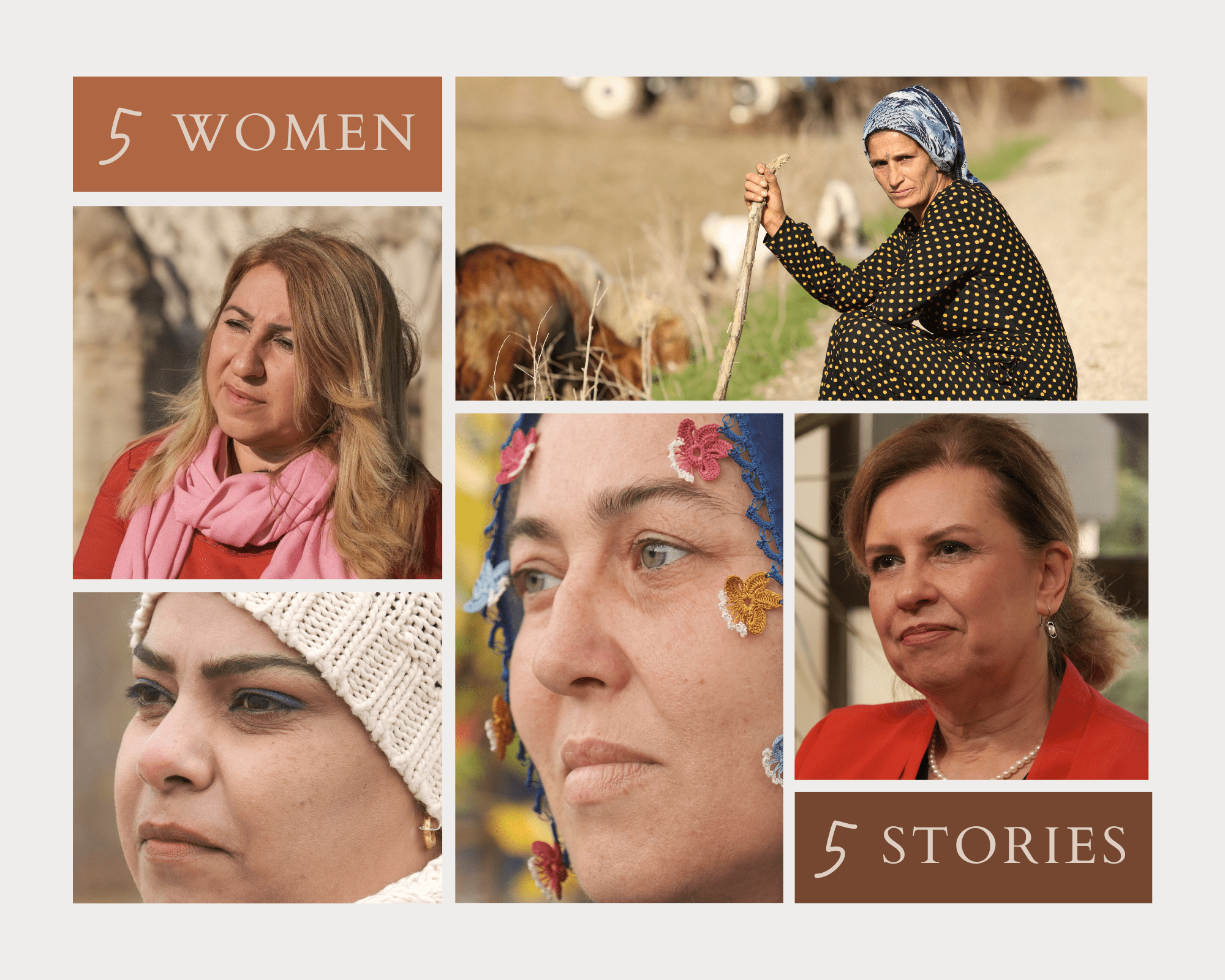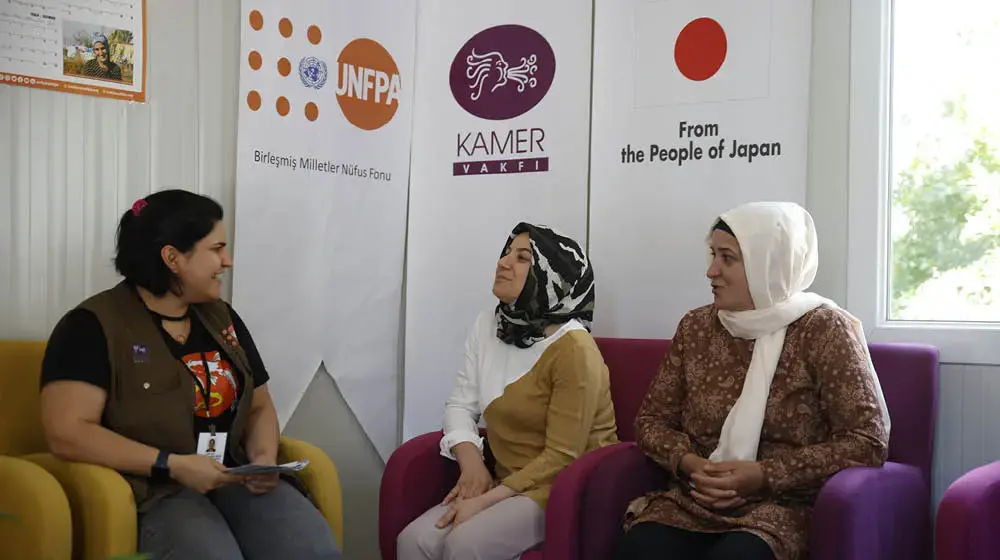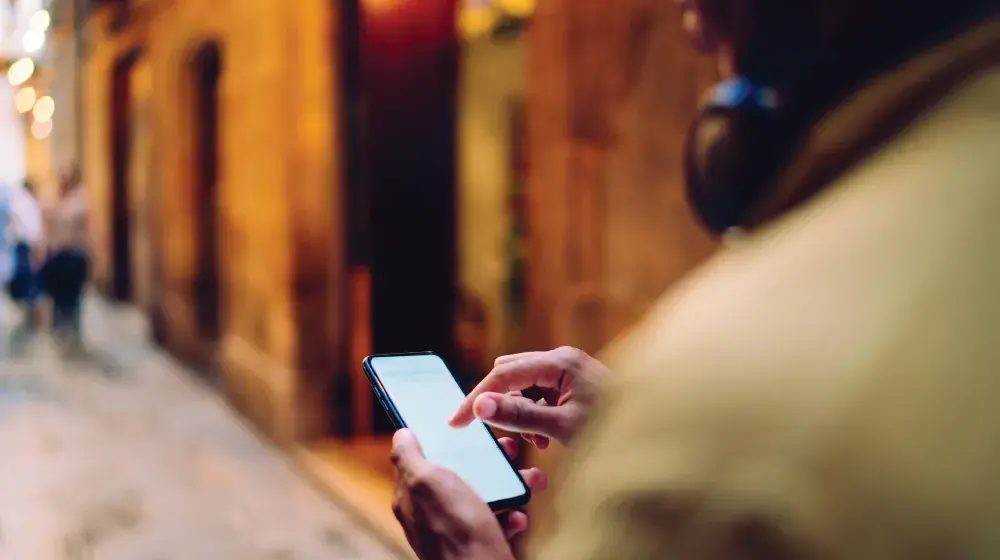Young, elderly, poor, wealthy, migrant, refugee, educated, uneducated, with disabilities or white collar… Physical, sexual, psychological or economic, gender-based violence targets all types of women and girls around the world. Globally 1 out of every 3 women and 4 out of every 10 women in Turkey are exposed to at least one form of violence in their lifetime. Every day, 137 women are killed by someone they know around the world. In 2020 only, 266 women died in Turkey as a result of male violence.
Ankara, Türkiye - Both in the world and in Turkey, women are exposed to different forms of gender-based violence every day. In addition to physical harm, violence leaves multiple and severe damages. It takes away the most fundamental human right of women, to live with dignity.
Sibel, Hülya, Sevgi, Asmaa and Tülin are just a few of those women who have experienced violence, observed violence and fought against it… Their stories are not only about the reality of violence against women and gender inequality but it is also the story of women's power, solidarity and hope…
Sibel...
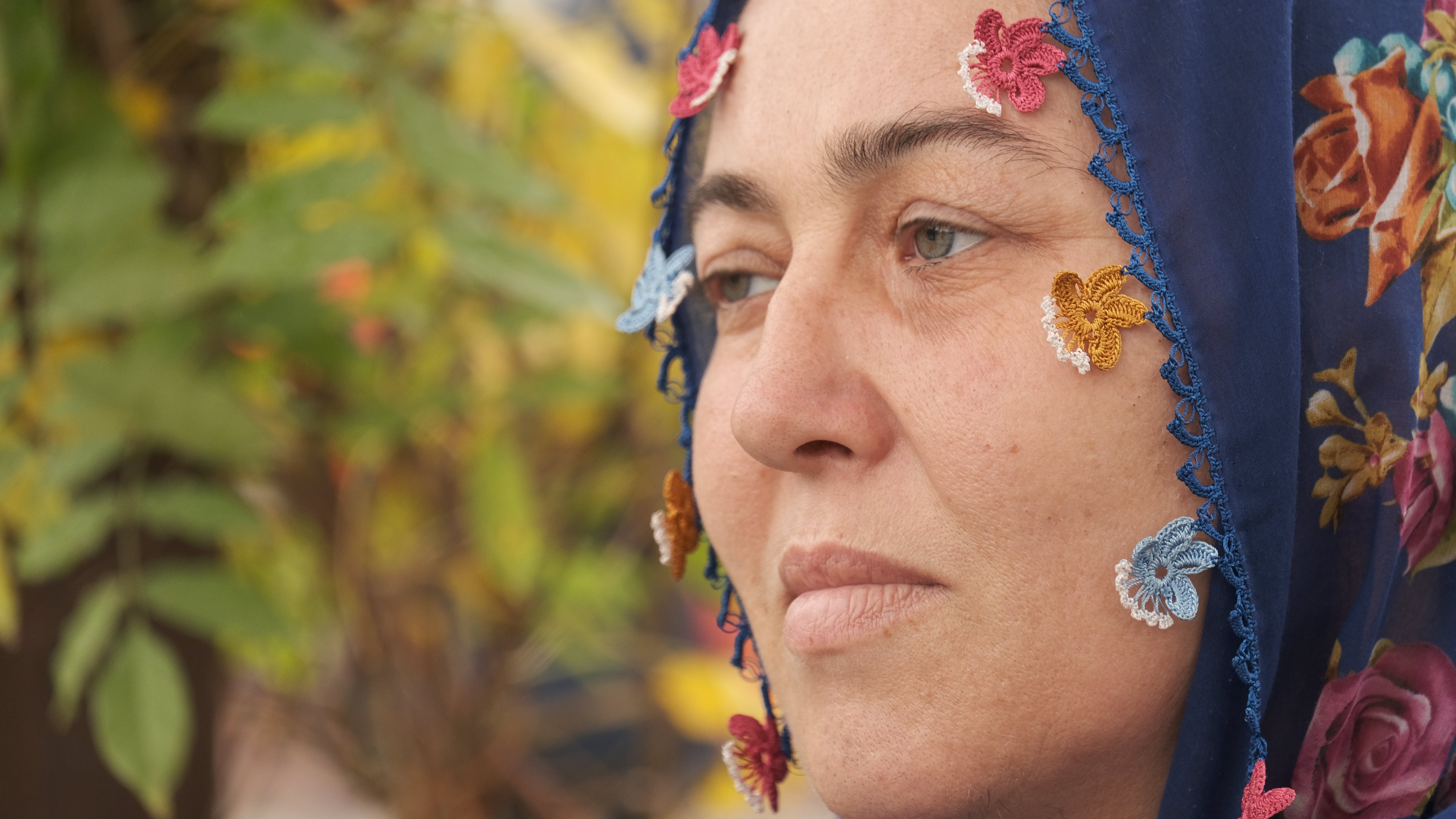
Sibel is 43 years old and a mother of 3. She lives in Bursa. She was just 14 when she got wedded. She was exposed to violence by her father and brothers before she got married, and she was subjected to violence by her husband for many years after she got married. Sibel summarizes her marriage as follows: "Beating, cruelty. Why didn't you cook, get beat up; why is it tasteless, get beat up. That is, there is nothing but beating." The person whom she was together with after she broke up with her husband also used violence on both her and her children. Sibel, who had a very difficult time for a long time, is now both mother and father to her children. She says that the violence caused both physical and psychological damage to her but she is not hopeless. With the support of UNFPA, she now feels much stronger: "Nobody should say I'm alone. I am still overly hopeful of myself".
Listen to Sibel's story from her, with the voiceover of the successful actress Songül Öden, UNFPA Turkey Honorary Ambassador.
Hülya…
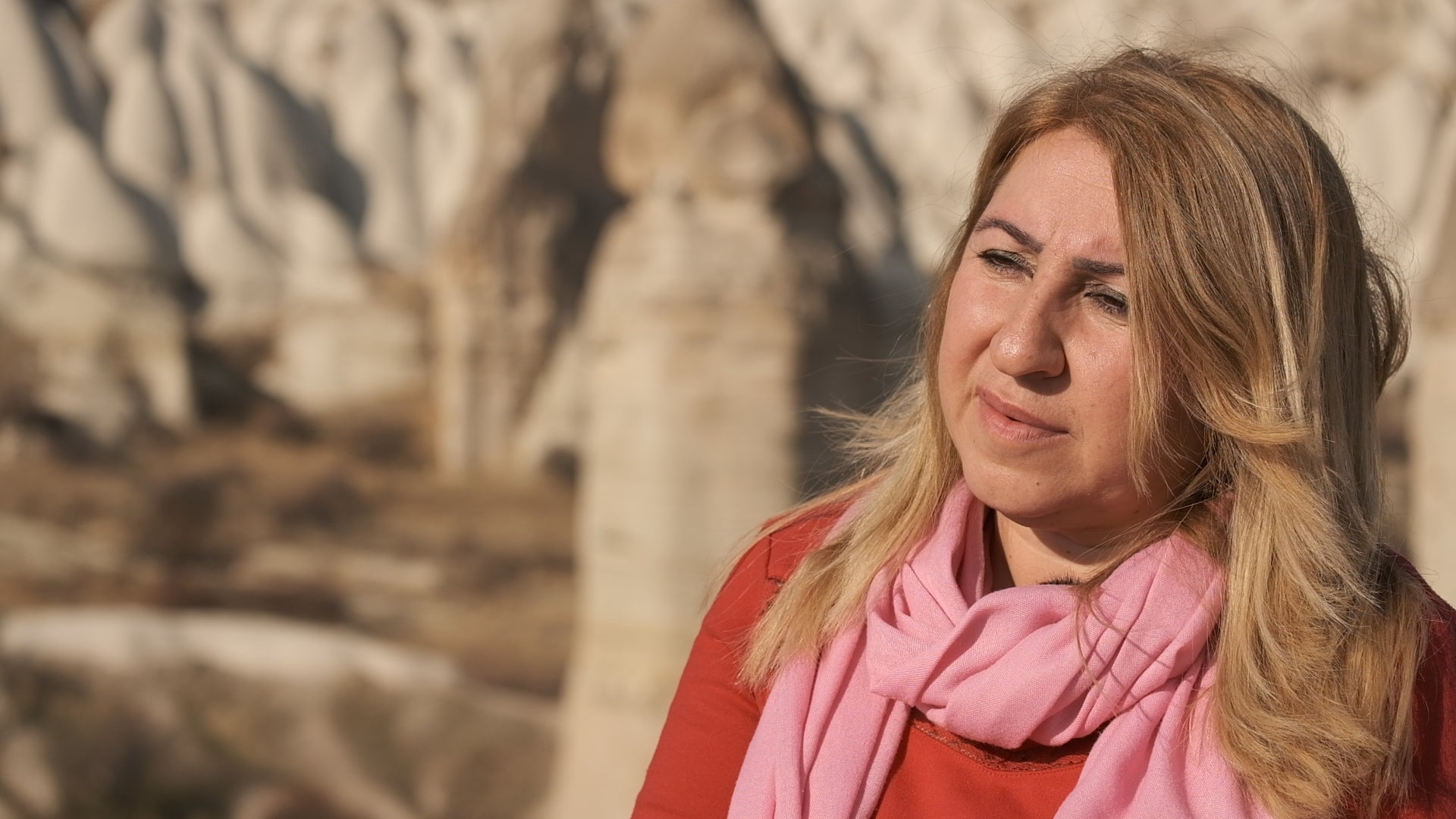
Hülya is 48 years old. She is a mother of 2 and lives in Nevşehir. She is one of every 5 women who got married at childhood age. She was physically abused by her first husband for 10 years. She describes her marriage with the following words: “I was hospitalized 3 times. The doctors thought it was a traffic accident. He tried to stab me and my children in our last fight.” Hülya, who remarried after 15 years, is still trying to heal her wounds: “He thought that I hit her and it would pass, but the scars he left on you can come to surface even years later. Now, whenever my husband makes a gesture, I think he will beat me." Hülya is now working to end child marriages, one of the most common forms of gender-based violence, with the support of UNFPA, so that other girls do not experience what she went through. Hülya also has some advice: "Women should work, stand on their own feet."
Listen to the whole story of Hülya from her, with the voiceover of the successful actress Binnur Kaya.
Sevgi…
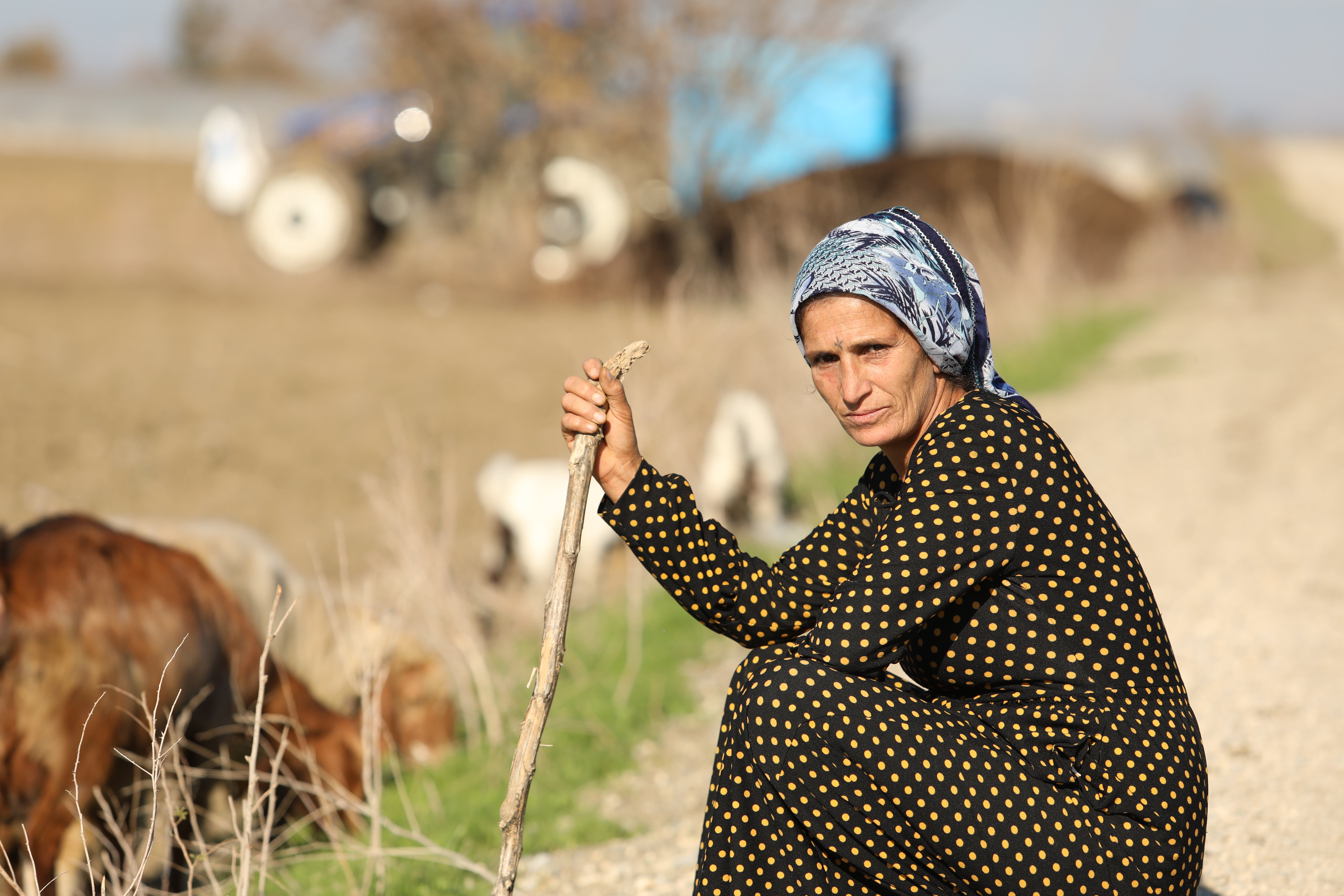
Sevgi is 40 years old and a mother of 6 children. She lives in Mersin. She was 13 years old when she got married and only 15 when she became a mother. She was exposed to violence by her first husband and she left him. Her second husband forced her to marry someone else in exchange for land. “I suffered a lot from hunger, and poverty. I tried to survive for my kids. Sadly, life didn't treat us fair” she summarizes what she went through. Sevgi is now working as a seasonal agricultural worker to take care of her children. Having learned about her rights with the support of UNFPA, Sevgi is now stronger and fighting alone for herself and her children but she does not feel lonely. “I would like to read. I would not want to have these wrong marriages” says Sevgi, who has a message to all parents: "Do not marry your daughters at an early age."
Listen to the entire story of Sevgi from her, with the voiceover of the successful actress Ceyda Düvenci.
Asmaa…
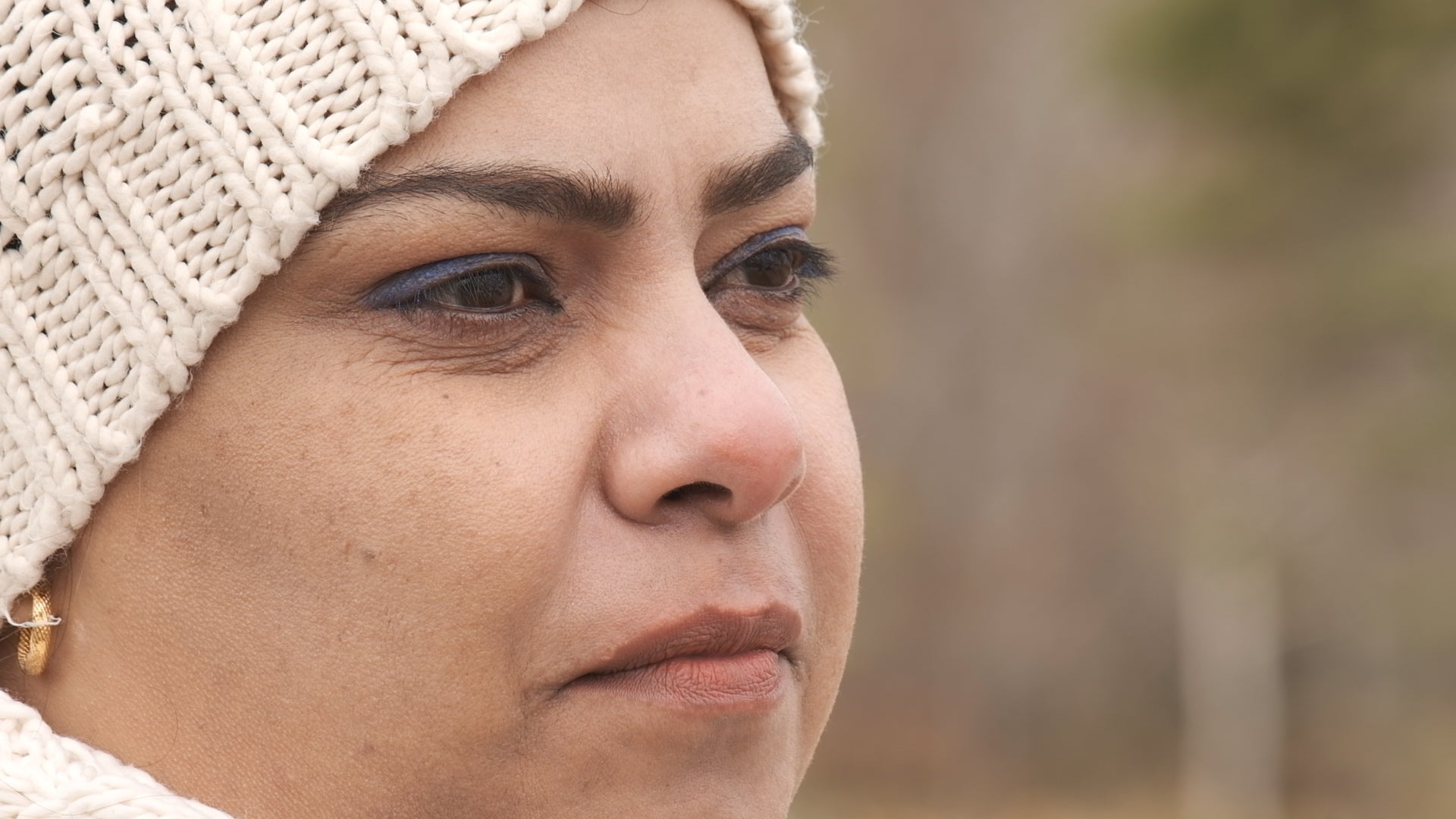
Asmaa is 43 years old. She fled to Turkey from Iraq in 2018 and now lives in Eskişehir. She is one of the most vulnerable among migrants and refugees, one of the groups who are most exposed to gender-based violence. As she lives with disabilities, her husband’s family did not want her and used violence on her: “One day my husband was at work. His family came home and beat me until I passed out because of my disability. When my husband came home, he found me unconscious. I was hospitalized for a night” she explains her traumatic experience. Asmaa, who decided to move to Turkey with her husband after this incident, says that she survived violence on the day they left the country. With the support of UNFPA, she is trying to heal his wounds and leave those days behind: “The violence is over but I could not erase its marks for a long time. I have learned my rights with your support. My self-confidence has been restored. I am gradually recovering."
Listen to Asmaa's full story with the voiceover of the successful actress, Belçim Bilgin.
Tülin…
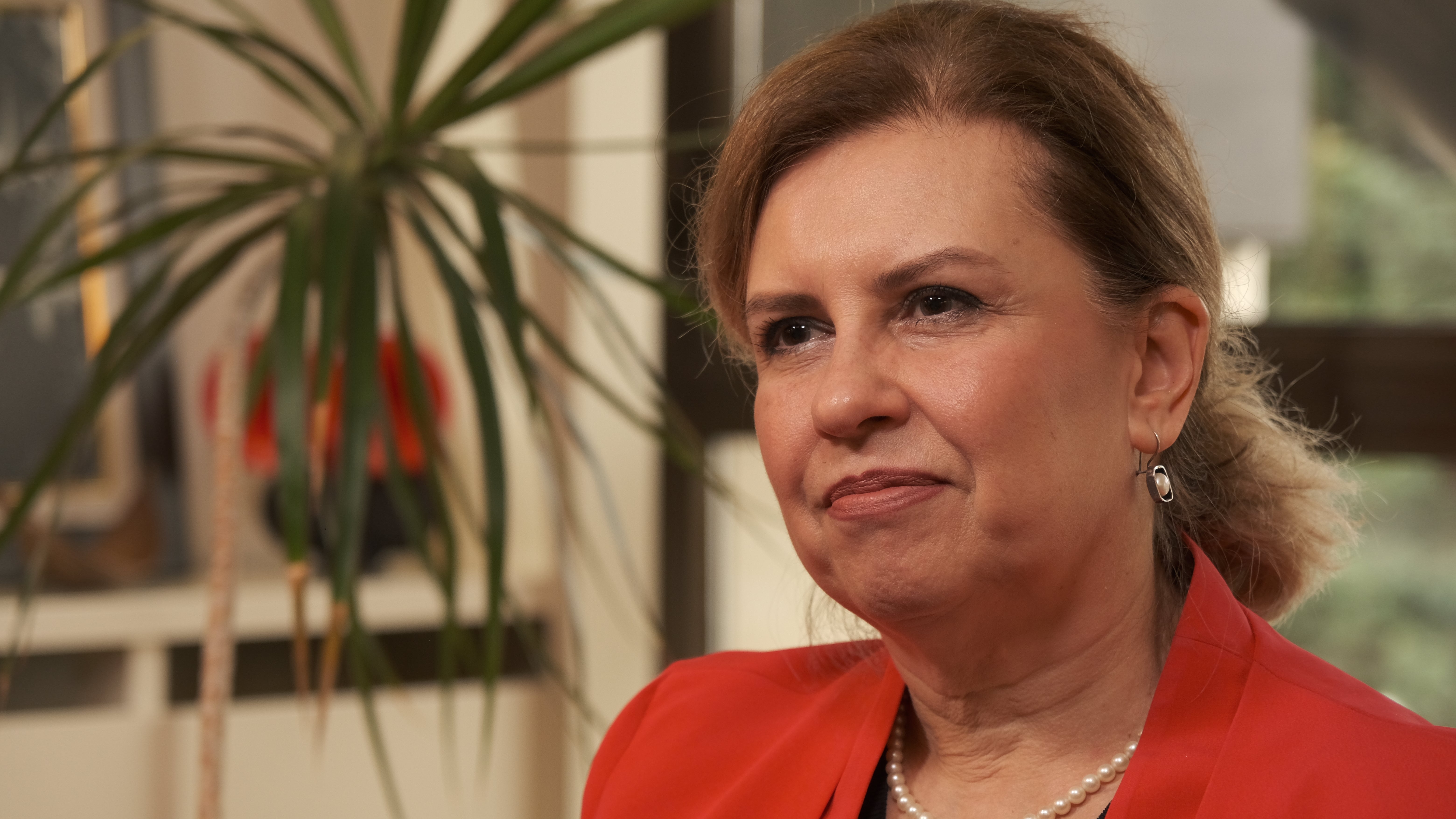
Tülin Tezer has been the general manager of a private company for 12 years. She is an influential women leader. Throughout her professional life, she has observed domestic violence against both white-collar and blue-collar women employees and tried to offer solutions to support them. “Violence against women is also very common in the working life, even if it is not openly stated. Moreover, we observe that most women do not know what to do in this situation” she says. Reminding that 75 per cent of women employees, most of whom are university graduates, are subjected to violence at least once in their lifetime, Tülin Tezer has a message to the business world: “The business world should definitely stand up against violence. They should also create the necessary support mechanisms for their employees in this regard within their companies."
Listen to Tülin's whole story with the voiceover of the successful actress Didem Balçın.
The United Nations Population Fund, UNFPA Turkey, continues its efforts to empower women, to promote sexual and productive health and for prevention and protection against violence against women by prioritizing the needs and rights of women, girls and the most vulnerable groups in cooperation with public and private sectors, academia and civil society.

